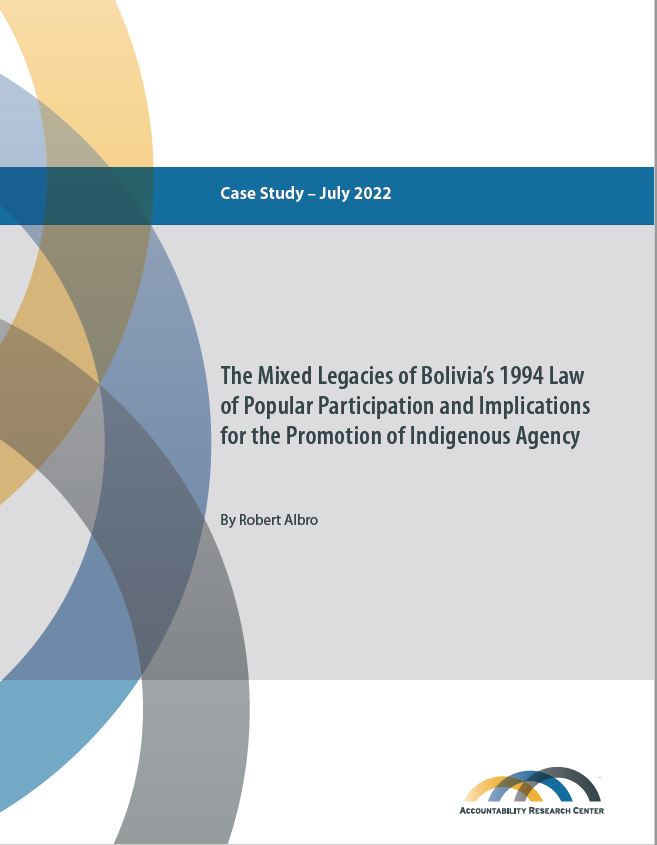
The Mixed Legacies of Bolivia’s 1994 Law of Popular Participation and Implications for the Promotion of Indigenous Agency
Date: July 2022
Author(s): Robert Albro
Publication type:
Published by: Accountability Research Center
“Sandwich strategies” are interactive processes in which reformers in government take tangible measures that reduce the risks of citizen action from below, driving virtuous circles of mutual empowerment between pro-accountability actors in state and society. This case study is one of a set of 18 published here, which are among those included in comparative analyses of whether and how sandwich strategy initiatives drive institutional change.
Bolivia’s 1994 Law of Popular Participation created an opening from above for civic engagement by empowering municipal governments, which were elected for the first time. Consistent with the “sandwich strategy”, as a top-down mechanism of reform, the Law of Popular Participation was intended to expand the role of traditional grassroots organizations and indigenous communities in local governance by giving them greater oversight over local elected officials, budgets, and resource distribution. In practice, these reforms had varied consequences for municipalities and indigenous communities throughout the country.
This case study evaluates the Law of Popular Participation by examining six cases from across the country, which show key differences between how the law’s framers conceived and imagined it, and how it was understood and implemented by various constituencies throughout Bolivia. These cases highlight several broader implications of the law, including how it affected ethnic and indigenous identity claims, and unanticipated uses of the law by grassroots social movements to contend with and extract concessions from the state.
Trained in sociocultural anthropology, Dr Robert Albro has maintained a long-term ethnographic focus on urban and indigenous politics in Bolivia. He is also an expert on Latin American social and indigenous movements. In addition, Dr. Albro researches and regularly writes about domestic and international cultural policy frameworks, including formulations of cultural rights, cultural diplomacy, and intersections between cultural knowledge, security, and technology. Additional information about Dr. Albro’s work can be found here: www.robertalbro.com
